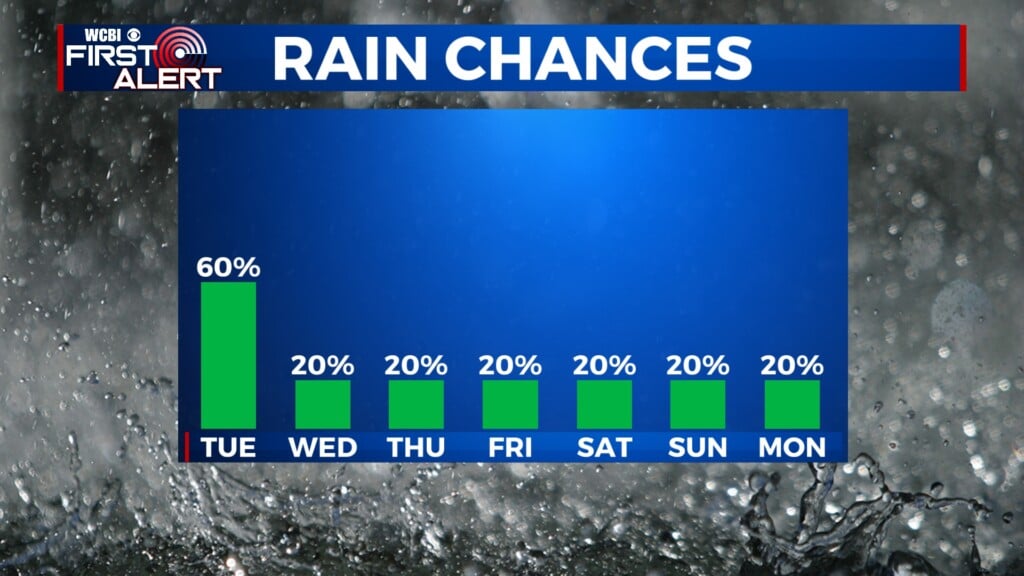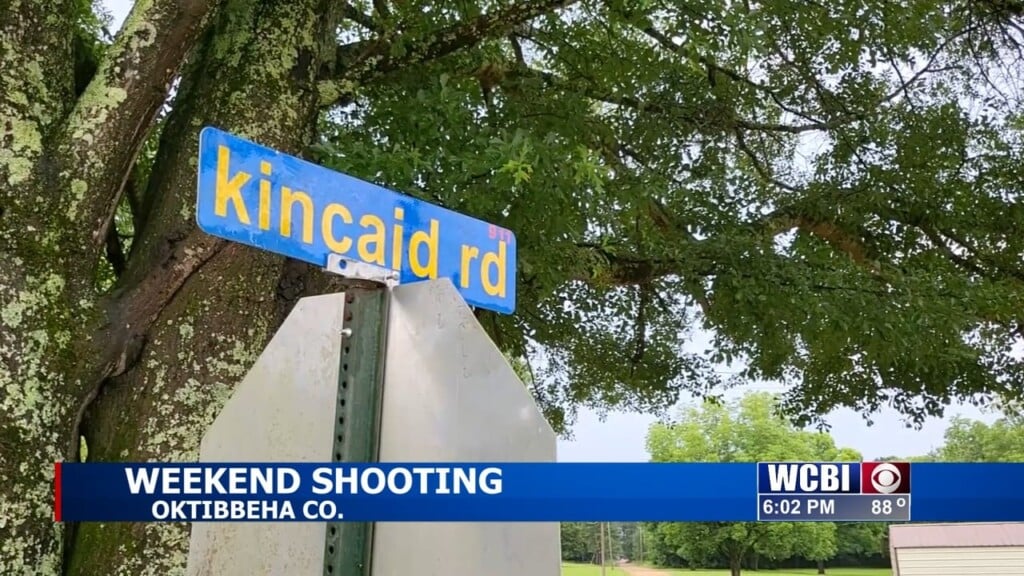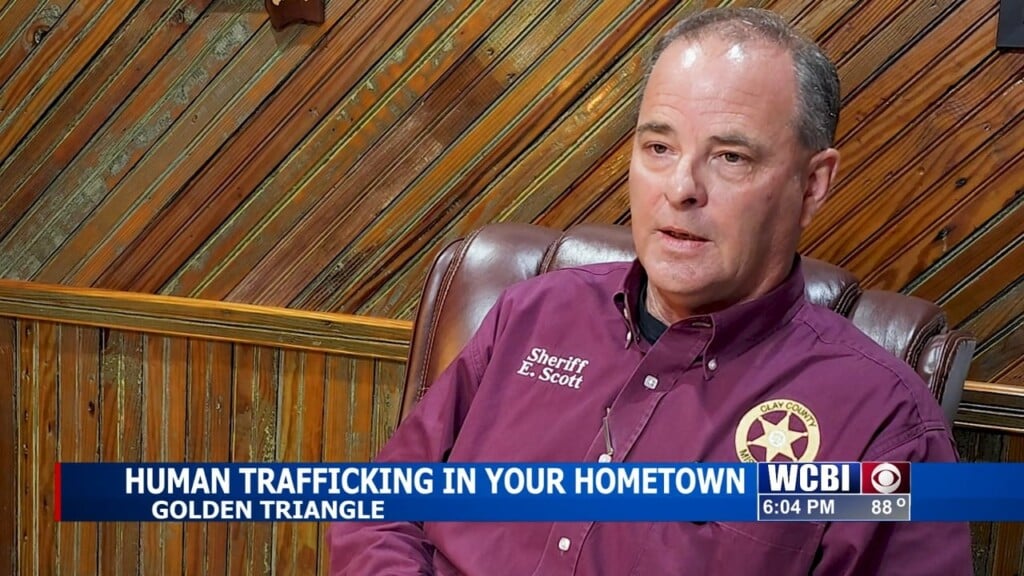Bill would approve U.S. citizenship pathway for Liberians
Washington — Linda Clark can’t believe her son has a beard now. She has not seen him in person for about 19 years.
But in an unlikely development in Washington, the 50-year-old Minneapolis resident may soon be able to travel to her native Liberia to do so.
“Oh my god. I’m happy,” she said. “I could have the opportunity to go see my son. I left my son when he was two. He’s 21-years-old now.”
Clark, who came to the U.S. in 2000 fleeing a civil war in her native country, expects to benefit from a pathway to American citizenship that Congress passed this week as part of the multi-billion-dollar defense spending bill.
If the 2020 National Defense Authorization Act is signed into law by President Trump, who has signaled he will do so, the provision would legalize the status of thousands of Liberian immigrants like Clark whose protections from deportation have or are set to expire.
Although estimated to cover a comparatively small population, the creation of the legalization program would represent an improbable feat for immigrant advocates under the Trump administration, which has overseen a crackdown on both legal and unauthorized immigration.
The bill’s approval by the White House would also mark the culmination of a decades-long advocacy campaign by a spirited movement of Liberian communities across the U.S. and their allies. For years, they’ve lobbied Congress to replace the uncertainty of their temporary protections from deportation with a permanent solution that includes a pathway to U.S. citizenship.
The “Liberian refugee immigration fairness” provision in the $738-billion spending bill would allow certain Liberian immigrants to apply for green cards if they arrived in the U.S before November 20, 2014 and lived here continuously. Those convicted of serious crimes would be barred from requesting the relief.
For Clark, obtaining a green card is “an opportunity to live in this country stress free.” The Liberian mother is currently shielded from deportation through the Deferred Enforced Departure program, which the Trump administration has sought to end. Although it allows her to work in the U.S., the temporary protection has to be renewed every year and does not allow her to travel abroad and return to the U.S.
That has been the most difficult for Clark, who was not able to travel to Liberia when her father died in 2009. “It was just devastating. I couldn’t even go back to bury my dad.”
“The ability to dream”
The pathway to U.S. citizenship passed by lawmakers this week would grant a permanent reprieve from deportation to members of a community that has established itself across the U.S. for more than 30 years, despite multiple actions in Washington that have endangered their temporary protections over decades.
In 1991, President Bill Clinton’s administration extended Temporary Protected Status (TPS) to thousands of Liberian immigrants, recognizing that the U.S. could not return them to a country engulfed in a bloody civil war.
After a peace agreement ended the war in 1997, the Clinton administration ended the TPS designation for Liberia. However, citing foreign policy considerations, Clinton used his executive power to grant Deferred Enforced Departure to 10,000 Liberian immigrants.
Those temporary protections were extended until 2002, when President George W. Bush’s administration created another TPS designation for Liberia, citing a second civil war that broke out in 1999.
But the Bush administration announced in 2005 that it would terminate the TPS program for Liberia in 2007, determining that conditions in the country had improved following the end of the second civil war in 2003. Abena Abraham was 12 years-old in 2007 and still remembers the anxiety that beset her household and community in the Minneapolis metropolitan area, home to one of the largest Liberian communities in the country.
“I couldn’t go out of the country with my friends on trips. I had to be extra cautious with just about everything that I did,” said Abraham, who came to the U.S. as a four-year-old.
Mr. Bush, however, chose to grant Abraham and other Liberian immigrants enrolled in the TPS program at the time Deferred Enforced Departure protections. The Obama administration followed suit and regularly renewed those protections. In 2014, Mr. Obama created a third TPS program for Liberians in response to the Ebola outbreak in West Africa that year. That designation ended in the spring of 2017.
In March 2018, the Trump administration refused to renew the Deferred Enforced Departure protections for Liberians, with the president ordering a 12-month wind down of the program. But in a surprising move this spring, Mr. Trump, citing “further reflection,” announced he would keep the program in place for another year.
In his order, Mr. Trump cited the “unique” relationship the U.S. has with Liberia, a state which was founded in part by formerly enslaved Americans in the 1840s. He also mentioned potential congressional action.
That action was realized this week, when Congress sent the president a bill that would finally create program to legalize the status of a large segment of America’s Liberian diaspora.
Abraham, who is now a permanent resident and the co-founder of the Black Immigrant Collective, said the legislation’s enactment would serve as much-needed relief to her community, which she noted includes mixed-status families who have feared being separated for years.
“It gives people the ability to dream about someday going back home and reuniting with their family members that they haven’t seen,” she said. “And it means that people can go to bed at night and not have to worry about what they’ll hear tomorrow.”
The bill’s passage in Congress, Abraham added, serves as a testament to 30 years of dogged advocacy work by Liberian mothers, grandmothers and daughters. “This has been a fight that women have been at the forefront of.”
Although she’s relieved to finally see a “light at the end of the tunnel” in her struggle to legalize her status, Clark hopes that Congress and the administration can place other undocumented immigrants with temporary protections on a pathway to U.S. citizenship.
“We are happy, but we are still concerned for the DACA folks and the TPS folks,” she said. “We are grateful that we have it, and we are still praying for them.”





Leave a Reply